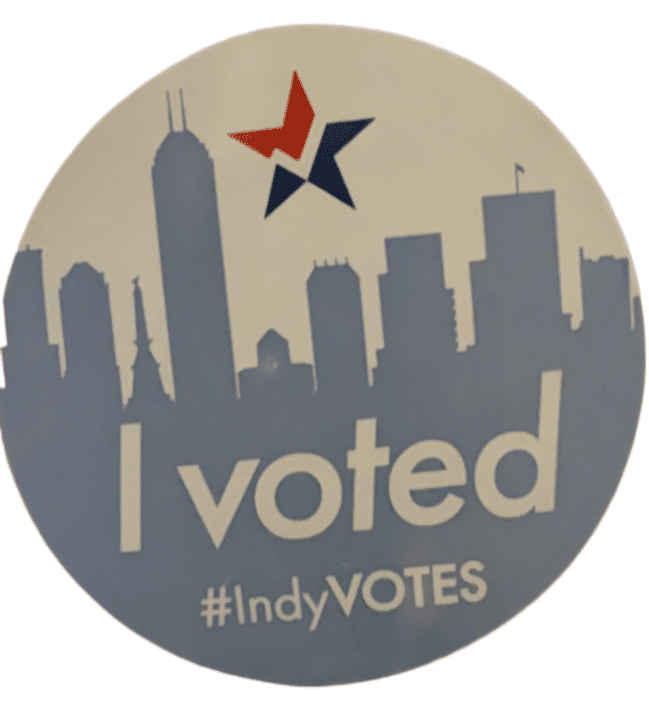
The Indiana Citizen
November 8, 2023
The Chicago Lawyers’ Committee on Civil Rights had more calls than expected from Indiana voters during Tuesday’s municipal elections with the number almost equal to the volume recorded from the May 2022 primary.
Ami Gandhi, CLCCR director of strategic initiatives and Midwest Voting Rights Program, said the committee was encouraged by the number of calls to its Election Protection Hotline.
“This could have been a super slow day with no one calling in, and that’s not what we’ve seen,” Gandhi said Tuesday evening, shortly before the polls closed. She added the committee has been energized by the “energy that voters are feeling today.”
The CLCCR partnered with the National Lawyers’ Committee on Civil Rights to answer questions and provide nonpartisan election information to voters across the country. Calls to the hotline were received by the NLCCR’s call center.
Also, the Indiana Secretary of State offered a text hotline for Hoosiers to text their questions about voting or problems with casting a ballot on Election Day. The secretary of state’s office said the data was still being compiled but the most common questions were those related to the locations of the polling sites.
Gandhi estimated “at least a third” of the Indiana calls were from voters confused about whether they were eligible to cast a ballot based on their address. In “at least 10 counties” across Indiana, the voters were trying to determine if they lived within a city or town and could vote in the municipal election.
The CLCCR had to tell several callers they were not, in fact, living inside the municipality and could not vote. But Gandhi maintained the upside of the calls was that Hoosiers wanted to vote.
That places an onus on state and local officials to “do a much better job going forward” of informing voters about the details of Election Day, Gandhi said. Not only should voters be provided with information as to what is on the ballot, she said, but they should also be told when the next election will be, which would have been particularly helpful for the voters who found out they were ineligible to vote in Tuesday’s municipal elections.
“That sort of information seems to be sorely lacking in many communities across the state,” Gandhi said. “We would never want people to feel discouraged from coming back again another time because of lack of information today.”
The Election Protection Hotline also received calls from formerly incarcerated individuals wanting to know if they could vote. In Indiana, a criminal record does not permanently disqualify someone from voting. Individuals who are in pretrial detention or have already served their sentences are eligible to vote.
Gandhi said she was “heartened to see that multiple calls came” from people re-entering their communities and wanting to know if they could participate in the election. That, she said, is another area where public officials and voting rights organizations can provide more information, so formerly incarcerated individuals are comfortable asking questions about voting.
Looking ahead, Gandhi said preparations for the 2024 elections should incorporate the lessons from the 2023 elections. Namely, voters need to be informed about the mechanics of casting a ballot.
“This gives us a helpful reminder that when we all as a community come together and start well before the elections and support people as they’re making a plan to vote, getting their questions answered, then we all win,” Gandhi said. “The earlier we can prepare in being ready with the resources and information for voters, then we can spare local election authorities who are already stretched from having to field all of that on the day of (the election).”